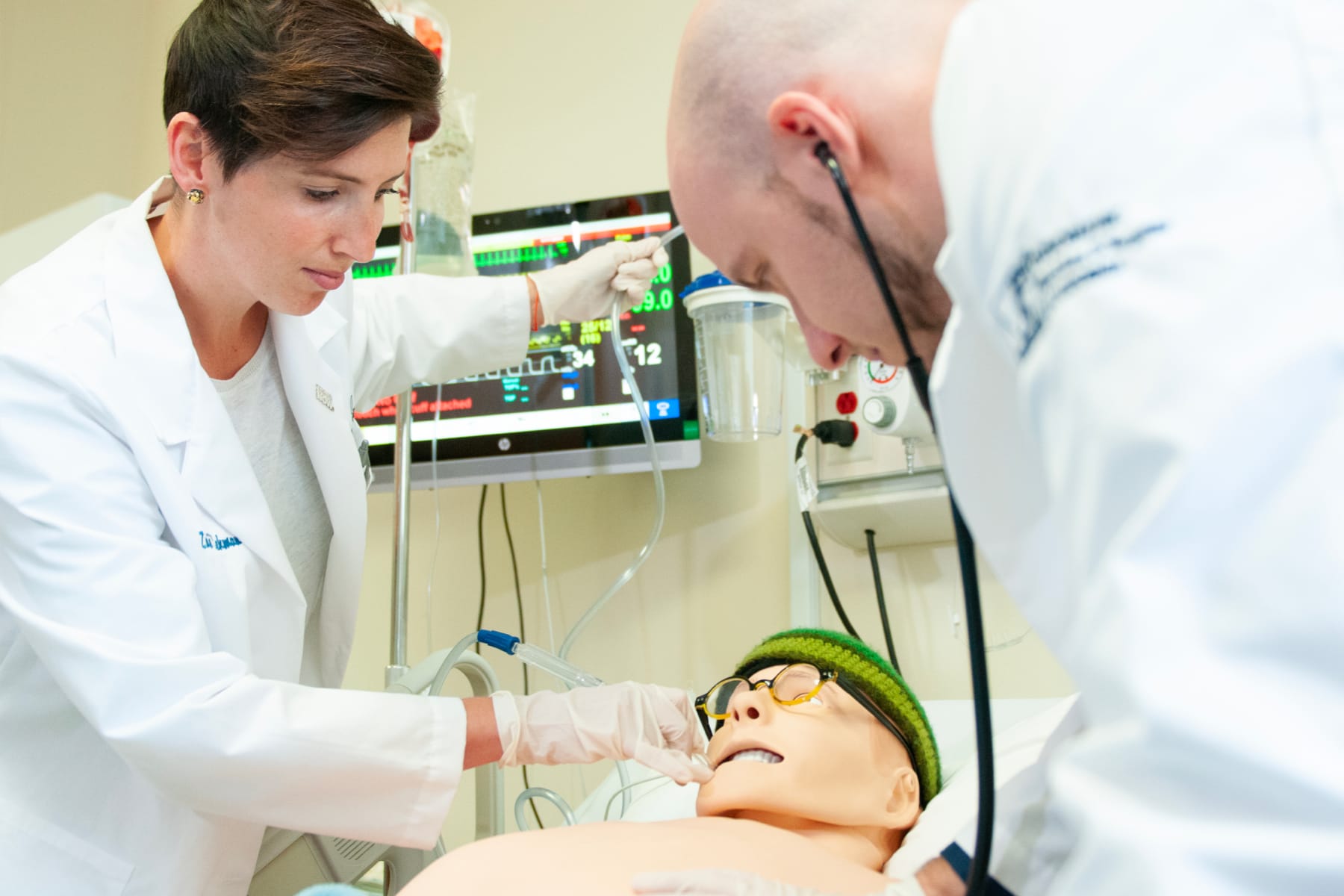
Technical Standards
We're delighted you're considering applying to Touro California's College of Osteopathic Medicine.
We seek applicants just like you who are committed to primary care, complete patient treatment and lifelong community service.
Technical Standards for Admission to the DO Program
Applicants who seek admission to the College of Osteopathic Medicine should possess the intellectual, ethical, physical, and emotional capabilities needed to complete the curriculum and achieve levels of competence required by the faculty. Once enrolled, each candidate for the DO degree must be able, quickly and accurately, to integrate all information received, perform in a reasonably independent manner, and demonstrate the ability to learn, integrate, analyze and synthesize information and data.
We will make every effort to provide reasonable accommodations for physically challenged students. In doing so, however, we must maintain the integrity of the curriculum and preserve those elements deemed essential to the acquisition of knowledge in all areas of osteopathic medicine, including the demonstration of basic skills requisite for the practice of osteopathic medicine. Accordingly, we require each student to meet the following technical requirements:
- Observation: You must be able to observe demonstrations, experiments, and laboratory exercises in the basic sciences. You must be able to observe a patient accurately at a distance and close at hand.
- Communication: You must be able to elicit information, examine patients, describe changes in mood, activity, and posture, and perceive non-verbal communication. You must also be able to communicate effectively and efficiently in oral and written form with all members of the health care team.
- Motor Function: You must have sufficient motor function to execute movements reasonably required to provide general care and emergency treatment to patients. Examples of emergency treatment reasonably required of physicians are cardiopulmonary resuscitation, administration of intravenous medication, and the application of pressure to stop bleeding, the opening of obstructed airways, and the suturing of simple wounds. Such actions require coordination of both gross and fine muscular movements, equilibrium and functional use of the senses to touch and vision.
- Sensory: You must have intact sensory skills, including tactile and proprioceptive abilities.
- Strength and Mobility: Osteopathic manipulative medical treatment often requires sufficient upper extremity and body strength. Mobility to attend to emergencies and to perform such maneuvers as CPR is also required.
- Visual Integration: Consistent with ability to assess asymmetry, range of motion, and tissue color and texture changes, it is essential for you to have adequate visual capabilities for the integration of evaluation and treatment of the patient.
- Intellectual, Conceptual, Integrative, and Quantitative Abilities: You must be able to demonstrate ability in measurement, calculation, reasoning, comparison and contrast, analysis and synthesis, and problem solving. You must demonstrate ability to comprehend three-dimensional relationships, and to understand spatial relationships of structures.
- Behavioral and Social Abilities: You must possess the emotional health required for full utilization of your intellectual abilities, the exercise of good judgment, the prompt completion of all responsibilities attendant to the diagnosis and care of patients, and the development of mature, sensitive relationships with patients and co-workers. You must be able to tolerate physically and mentally taxing workloads, adapt to changing environments, display flexibility, and learn to function in the face of uncertainties inherent in treating the problems of patients. Compassion, integrity, concern for others, interpersonal skills, interest, and motivation are personal qualities that will be assessed during the admissions and education process.
- Participation in Osteopathic Manipulative Medicine Laboratories: Active participation in Osteopathic Manipulative Medicine laboratories is an admission, matriculation and graduation requirement. The development of manipulative medicine palpatory skills is taught in all four years of the curriculum. This learning requires active participation in all laboratory sessions. During the first two years, each student will palpate, in the laboratory setting, a variety of people representing all genders and individuals with different body types to simulate the variety of patients expected in a practice setting. Being palpated by other students and faculty helps you appreciate how palpation feels from the patient's perspective, and enables you to provide feedback to your laboratory partners, thus enhancing your palpatory skills. Reading and observation, although helpful, do not develop the skills required to perform palpatory diagnosis and manipulative treatment. Each student is required to actively participate in all skills development laboratory sessions. Occasionally, a student may have a physical problem, which may contraindicate a specific type of manipulation in a specific anatomical location. If you feel manipulation might be contraindicated, you must contact the chair of the OMM department before the beginning of the course and present documentation of the problem. If the problem is confirmed through the examination and review of documentation, special arrangements will be authorized. You are expected to actively participate in all laboratory sessions not directly affected by the problem.
